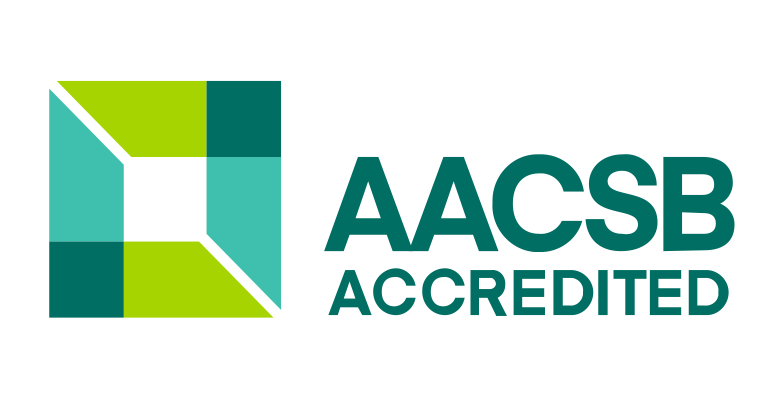Supply Chain Management
The Bachelor of Business Administration (BBA) in Supply Chain Management program reinforces analytical skills, leadership knowledge, and strategic thinking. This skill set enables students to analyze complex business problems with modern technology to effectively manage supply chains in a wide range of companies and industries. This program provides students with the fundamentals and expertise needed to build and advance their supply chain careers. The program also affords students in-depth and specialized knowledge of emerging cutting-edge topics in supply chain management (e.g., analytics, optimization, entrepreneurship, etc.). Consequently, students graduating from the BBA in Supply Chain Management program have a major competitive advantage in today’s job market.
Students in this program will be able to work in multiple areas that include logistics coordination, production planning, customer and supplier relationship management, business analytics, and procurement and marketing. This will prepare students for careers such as:
- Logistic Manager
- Materials Manager
- Supply Chain Manager
- Transportation and Distribution Manager
- Demand Planner
- Inventory Manager
- Supply Chain Consultant
- Operations Manager
- Purchasing Manager
- Supply Chain Analyst

Graduates can work in traditional Supply Chain Management jobs, as well as other disciplines such as consulting in manufacturing and logistics companies, purchasing, business analytics, performance evaluation, and strategic management. This program prepares students for their post-graduation life by equipping them with the most relevant and applicable information and skills. ETSU also has faculty with practical industry experience that can aid students in networking and job searching.
BBA in SUPPLY CHAIN MANAGEMENT: Three Concentrations
-
Supply Chain Leadership

This concentration focuses on supply chain integration, strategy, and change management. A hallmark of successful supply chain management is the ability to work across multiple firms to bring superior value to customers. In the supply chain leadership concentration, students learn how to successfully lead strategic collaborative efforts to integrate supply (e.g., procurement, logistics, etc.) and demand activities (e.g., product development, customer support, etc.) across entire value chains. In doing so, students graduating from this concentration will be prepared to help companies solve today’s most perplexing and complex supply chain problems.
In addition to the supply chain core, this concentration also focuses on the following areas:
- Organizational theory and development
- Human resources management
- Organizational leadership
- Project management
Clickhere to learn more about the Supply Chain Leadership concentration.
-
Supply Chain Marketing

This concentration focuses on demand management, product design, and launch. Demand management is the creation of a coordinated flow of demand. It consists of implementing systems to coordinate the effective promotion, production, and distribution of products and services across entire supply chains. In the supply chain marketing concentration, students learn how to successfully allocate and organize supply chain resources to achieve marketing objectives. Furthermore, students gain an understanding of how to drive customer satisfaction through effective outreach and engagement with market channel partners.
In addition to the supply chain core, this concentration also focuses on the following areas:
- Consumer behavior
- Sales force management
- Marketing management
- Marketing research and analytics
Clickhereto learn more about the Supply Chain Marketing concentration.
-
Supply Chain Operations and Analytics

This concentration focuses on technology enablement and performance management through the application of cutting-edge supply chain analytical techniques. Supply chain analytics is reshaping modern supply chains by enabling data-driven decisions at the strategic, operational, and tactical levels. It involves the application of interconnected intelligent systems to improve efficiency, effectiveness, and customer service levels across the entire value chain. In the supply chain operations and analytics concentration, students learn how to bring transformative change to organizations by leveraging the latest supply chain analytical methods and software.
In addition to the supply chain core, this concentration also focuses on the following areas:
- Data analytics and visualization
- Enterprise resource planning (ERP) systems (e.g., SAP)
- Database management
- Quality assurance
Clickhereto learn more about the Supply Chain Operations and Analytics concentration.
Request More Information

Flexibility. The 2021 Bureau Of Labor Statistics Occupational Outlook Handbook Indicates That Jobs Related To Supply Chain Logistics Will Increase By 30 Percent Over The Next Decade.

High Salary.According To The U.S Bureau Of Labor And Statistics, Graduates Enter The Workforce Earning A Median Salary Of $77,000 Per Year.

Growth. Overall Compensation From Supply Chain Professionals Grew 12% From 2021 To 2022. (Association for Supply Chain Management, 2022)

Benefits.Supply Chain Professionals Enjoy A High Level Of Job Flexibility, With Nearly Half Receiving Four Weeks Or More Paid Time Off.(Association for Supply Chain Management, 2022)

Practicality. Two-Thirds Of Supply Chain Professionals Work In A Hybrid Or Permanent Work-From-Home Setting If Desired.(Association for Supply Chain Management, 2022)
Supply Chain Experience
The East Tennessee State University (ETSU) Supply Chain Experience is designed to introduce high school students to the critical and ever-evolving Supply Chain Management (SCM) field. In today’s globalized economy, SCM is critical in ensuring products reach consumers efficiently, effectively, and sustainably. High school students interested in business, logistics, technology, or operations management can gain:
- Practical Application of Knowledge: Students can apply what they’ve learned in the classroom to realistic situations, reinforcing their understanding of supply chain concepts.
- Critical Decision-Making Skills: The simulation challenges students to make decisions quickly and accurately, simulating real-world supply chain management pressures.
- Teamwork and Collaboration: Participants must work together to achieve their goals, fostering important skills like communication, leadership, and teamwork.
- Immediate Feedback: Students can see the consequences of their decisions in real time, allowing them to learn from their mistakes and successes in a controlled environment.
November 8th, 2024. The ETSU Supply Chain Experience is free to participants.
Appalachian Highlands Supply Chain Summit

This year's Appalachian Highlands Supply Chain Summit is Friday, November 15th, 2024, at the ETSU Martin Center from 8:30 a.m. to 1:30 p.m. and is themed around The Supply Chain Ecosystem. This event is not just about delving into the intricacies, challenges, and technological advancements shaping supply chains' future. It's also a chance to network with supply chain experts, industry professionals, academics, students, government employees, and educators. Key topics will include the impact of emerging technologies, sustainability practices, and global supply chain trends. Don't miss this chance to gain valuable insights and expand your professional network, which values your expertise and contribution.
Interested in learning more about this program? Contact us for more information.

Matthew T. Jenkins, PhD
Associate Professor of Supply Chain Management and Program Coordinator
- jenkinsmt@etsu.edu
- 423-439-5399
- 457 Nicks Hall
 Stout Drive Road Closure
Stout Drive Road Closure 